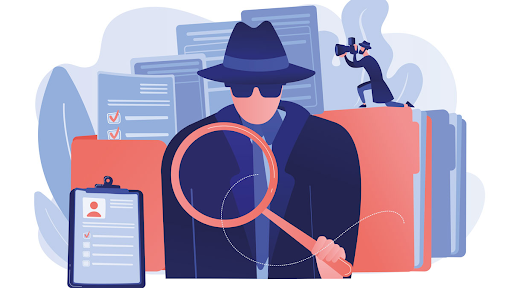How to Implement Surveillance Systems to Prevent Employee Theft
Employee theft is a pervasive issue affecting businesses of all sizes across Australia, including Sydney. According to various studies, employee theft accounts for a significant portion of business losses each year, leading to financial strain and operational disruptions. It’s essential for business owners to understand the gravity of this problem and implement effective strategies to safeguard their assets. One powerful approach is integrity testing, a method designed to identify potential risks and promote a culture of honesty and accountability within the workplace.
Why Employee Theft Happens and Its Impact on Businesses
Common Reasons for Employee Theft
Understanding why employee theft occurs is crucial for implementing preventative measures. Several factors can contribute to this dishonest behavior:
- Financial Hardship: Employees may resort to theft as a way to cope with personal financial difficulties.
- Lack of Accountability: In environments where there’s minimal supervision or oversight, employees might feel emboldened to steal.
- Workplace Dissatisfaction: Discontent with management or the work environment can lead employees to justify theft as a form of retribution.
- Peer Influence: If employees observe others stealing without consequences, they may feel encouraged to follow suit.
By identifying these underlying causes, business owners can take proactive steps to mitigate risks and reduce incidents of theft.
The Cost of Employee Theft for Sydney Businesses
The financial implications of employee theft can be staggering. According to recent statistics, businesses in Sydney face an average loss of thousands of dollars annually due to internal theft. This figure includes not only the direct monetary losses but also the costs associated with hiring and training new employees, legal fees, and damage to the company’s reputation. The impact of theft can extend beyond immediate financial losses, affecting employee morale and customer trust as well.
How Integrity Testing Helps Prevent Employee Theft
What Is Integrity Testing and How Does It Work?
Integrity testing is a pre-employment and ongoing evaluation process designed to assess an employee's honesty, reliability, and ethical standards. This testing can take various forms, including:
- Personality Assessments: These tests evaluate traits that may indicate potential risks for theft, such as impulsivity or a lack of responsibility.
- Situational Judgment Tests: Candidates are presented with hypothetical scenarios to assess how they would respond to ethically ambiguous situations.
- Background Checks: Verifying past employment history and criminal records can help identify red flags.
By employing integrity testing, businesses can filter out candidates who may pose a higher risk for theft before they even join the organization.
Using Integrity Testing to Identify Risk Factors
Integrity testing is not just a hiring tool; it can also be used to monitor existing employees. Regular testing can help identify risk factors that may indicate potential theft or fraud. Businesses can:
- Analyze Test Results: By assessing patterns in test results, employers can pinpoint employees who may require additional monitoring or support.
- Implement Targeted Training: Use the insights gained from testing to develop training programs addressing specific areas of concern, such as ethical decision-making and financial responsibility.
By integrating integrity testing into your employee evaluation processes, you can create a more secure workplace and deter potential theft.
Best Practices for Implementing Integrity Testing in Sydney
Choosing the Right Integrity Testing Services in Sydney
When considering integrity testing for your business, it’s essential to choose reputable testing services. Look for providers that specialize in employee evaluations and have experience working with businesses in Sydney. Some key factors to consider include:
- Customization: The testing services should be tailored to fit the unique needs of your business and industry.
- Credibility: Check for testimonials or case studies from other Sydney businesses that have successfully implemented integrity testing.
- Support and Training: Choose a provider that offers guidance on interpreting test results and implementing best practices for theft prevention.
Selecting the right integrity testing service can significantly enhance the effectiveness of your theft prevention strategies.
Ensuring Ethical and Legal Compliance During Testing
It’s crucial to adhere to ethical and legal guidelines when implementing integrity testing in the workplace. This includes:
- Transparency: Inform employees about the integrity testing process and its purpose. Being transparent helps build trust and reduces anxiety among staff.
- Consent: Ensure that employees consent to participate in integrity testing, especially when it involves personal data.
- Compliance with Local Laws: Familiarize yourself with relevant workplace laws in Sydney to ensure that your testing practices comply with legal standards.
By prioritizing ethical considerations, you can create a fair testing process that protects both your business and your employees.
Building a Culture of Trust and Accountability to Prevent Theft
Training and Educating Employees on Integrity
An effective way to prevent employee theft is to foster a culture of integrity within your organization. Consider implementing training programs that focus on:
- The Importance of Honesty: Educate employees about the consequences of theft, not just for the business but for their colleagues and customers as well.
- Ethical Decision-Making: Provide employees with the tools and knowledge needed to make ethical choices, especially in challenging situations.
Regular training and open discussions about integrity can help reinforce the values your business stands for, making employees more likely to act responsibly.
Creating a Transparent Reporting System for Theft
Establishing a clear and transparent reporting system is essential for encouraging employees to report any suspicious activity. A well-structured reporting system can include:
- Anonymous Reporting Channels: Allow employees to report theft or suspicious behavior without fear of retaliation. This can include suggestion boxes or online platforms.
- Clear Policies and Procedures: Ensure that employees are aware of the steps to take if they suspect theft. Providing clear guidelines can empower staff to speak up.
Creating an environment where employees feel comfortable reporting misconduct can help deter potential theft and maintain a secure workplace.
Conclusion
Integrity testing is a highly effective strategy for preventing employee theft in Sydney businesses. By identifying potential risks and fostering a culture of transparency and accountability, business owners can protect their assets and enhance their operational efficiency.
For additional support in safeguarding your business against theft, consider consulting with professionals who specialize in integrity testing and employee evaluations. Learn more about how Peak Investigations
can assist you in implementing effective theft prevention strategies tailored to your needs.
FAQs about Employee Theft Prevention with Integrity Testing in Sydney
What is integrity testing, and how can it help prevent employee theft?
Integrity testing is a method used to assess an employee’s honesty and ethical behavior. It helps identify potential risks and promotes a culture of accountability.
How common is employee theft in Sydney businesses?
Employee theft is a significant issue for many businesses in Sydney, leading to substantial financial losses each year.
Can integrity testing identify potential theft risks in my business?
Yes, integrity testing can highlight employees who may pose a higher risk for theft, allowing businesses to take proactive measures.
Is integrity testing legal and ethical in Sydney workplaces?
Yes, integrity testing is legal in Sydney as long as it complies with relevant workplace laws and ethical standards.
How can I create a workplace environment that discourages theft?
Fostering a culture of integrity through training, transparent reporting systems, and regular integrity testing can help create an environment that discourages theft.




